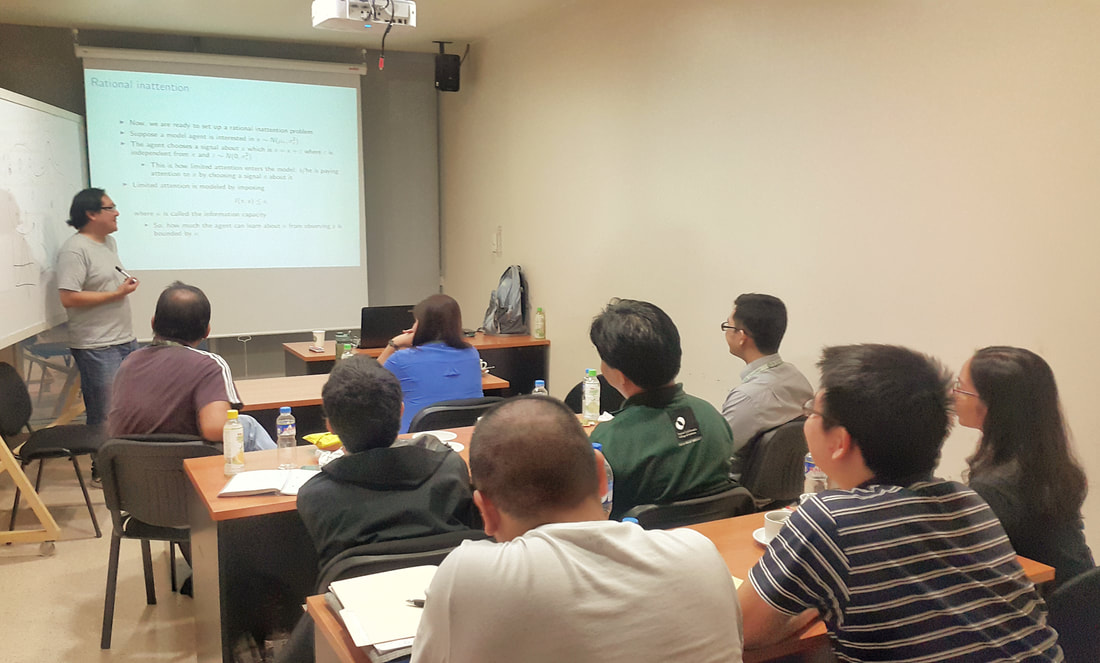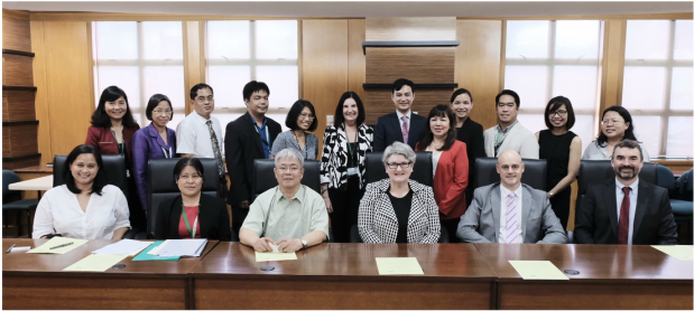

Graduate Degree Programs
Diploma in Development Economics
Master in Applied Economics
Master of Science in Economics
Doctor of Philosophy in Economics
Diploma in Development Economics
The Diploma Program in Development Economics (DE) provides a way to emphasize key economic principles and ideas that are primarily designed to appeal to those who engage in and are largely familiar with economic and developmental policies. Introducing a revitalized curriculum at this time gives the School of Economics the opportunity to infuse new theories and techniques and articulate key issues and problems affecting the country’s state of economic development. The revitalized curriculum is expected to strengthen the students’ analytical and communication skills.
The DE program is under a��memorandum of understanding with the Crawford School of the Australian National University��(ANU), forged in 2016.
Students who successfully complete the Diploma in Development Economics at �������ϲ� ��with an average grade of 3, or higher, will receive a Diploma in Development Economics from �������ϲ� and will be granted entry into the ANU Crawford School to study another year for one of the Nominated Degrees:��Master of Environmental and Resource Economics (MERE) or Master of International and Development Economics (MIDEC).
�������ϲ� students will be required to complete the normal ANU application form and provide the necessary supporting documentation. The final decision on admission to ANU will rest with ANU. Students who satisfactorily complete the course requirements of their nominated degree at the ANU Crawford School will be provided with certification that they have completed the required courses and awarded the corresponding ANU degree.
�����������hereto go to the details of the program.

Master in Applied Economics
The Master in Applied Economics (MAE) is a part-time program designed for corporate planners and professionals employed in financial institutions. The student will be rigorously trained in the practical applications of economic theory, the use of research methods and forecasting. Participants will also be exposed to theory, models, methodology, and tools that will enhance them in the field of monetary and financial economics.
In 2016, the��MAE program has been ranked 29th in the Far East Region by Eduniversal, a global ranking and rating agency of academic institutions since 2007.
�����������hereto go to the details of the program.
Master of Science in Economics
The Master of Science (MSc) in Economics is a full-time program redesigned primarily for students who need adequate preparation for a doctoral degree in Economics. The program is also appropriate for those who are teaching [or planning to teach] Economics at the graduate or advanced undergraduate level, or who are��affiliated��in research��institutions.��
The Doctor of Philosophy (PhD) in Economics program, first offered in 2007, is primarily designed in order to further upgrade, advance and ensure the continued development of the teaching skills and research capabilities of faculty who are currently handling economics courses in both the undergraduate and graduate programs.
�����������here��to go to the details of the programs.
Click here to see a list of all the courses for Graduate Studies Programs.

